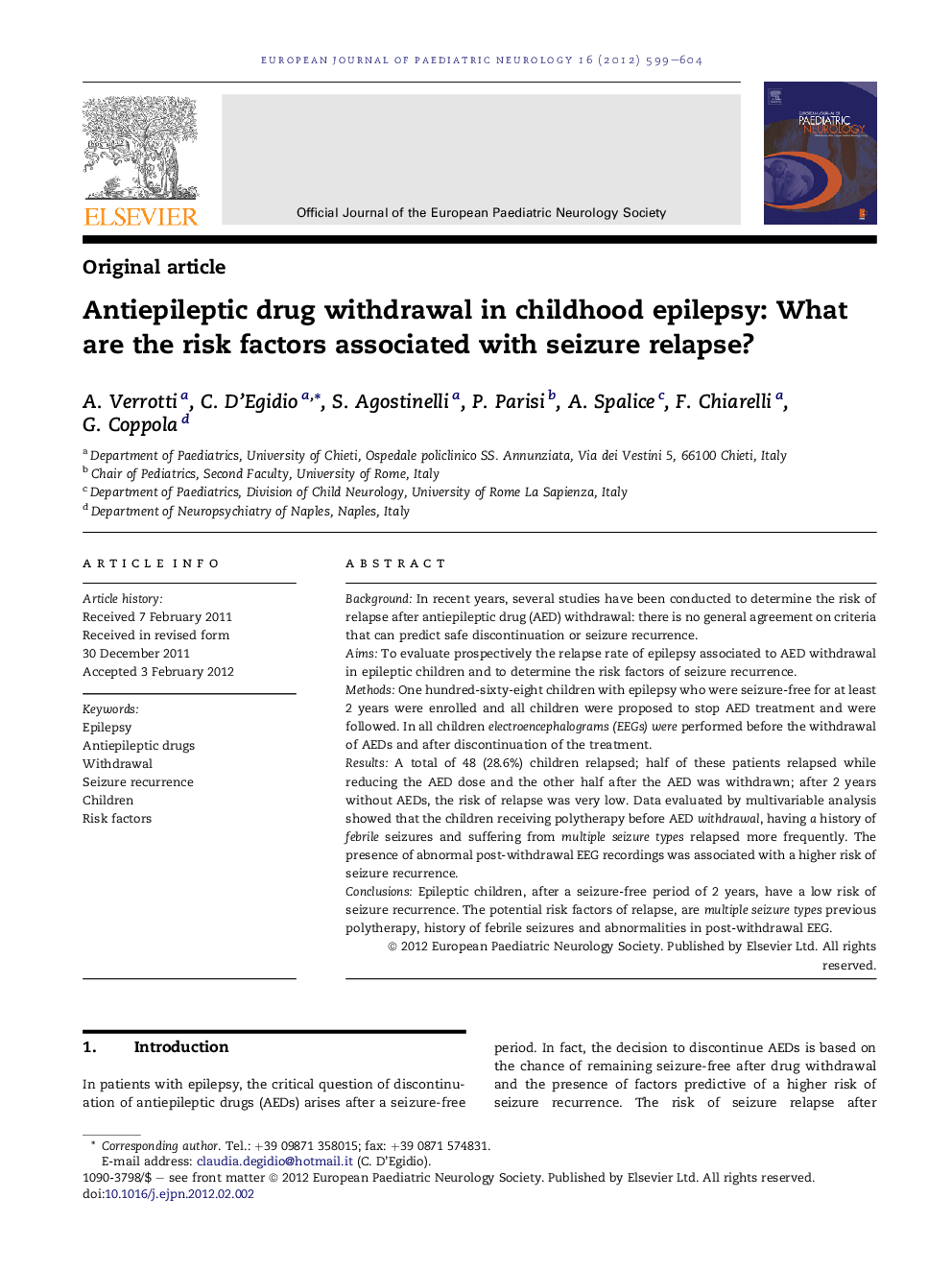| Article ID | Journal | Published Year | Pages | File Type |
|---|---|---|---|---|
| 3053898 | European Journal of Paediatric Neurology | 2012 | 6 Pages |
BackgroundIn recent years, several studies have been conducted to determine the risk of relapse after antiepileptic drug (AED) withdrawal: there is no general agreement on criteria that can predict safe discontinuation or seizure recurrence.AimsTo evaluate prospectively the relapse rate of epilepsy associated to AED withdrawal in epileptic children and to determine the risk factors of seizure recurrence.MethodsOne hundred-sixty-eight children with epilepsy who were seizure-free for at least 2 years were enrolled and all children were proposed to stop AED treatment and were followed. In all children electroencephalograms (EEGs) were performed before the withdrawal of AEDs and after discontinuation of the treatment.ResultsA total of 48 (28.6%) children relapsed; half of these patients relapsed while reducing the AED dose and the other half after the AED was withdrawn; after 2 years without AEDs, the risk of relapse was very low. Data evaluated by multivariable analysis showed that the children receiving polytherapy before AED withdrawal, having a history of febrile seizures and suffering from multiple seizure types relapsed more frequently. The presence of abnormal post-withdrawal EEG recordings was associated with a higher risk of seizure recurrence.ConclusionsEpileptic children, after a seizure-free period of 2 years, have a low risk of seizure recurrence. The potential risk factors of relapse, are multiple seizure types previous polytherapy, history of febrile seizures and abnormalities in post-withdrawal EEG.
